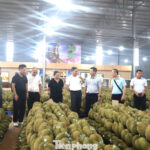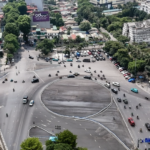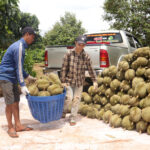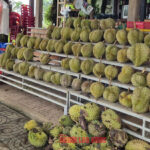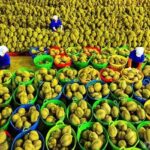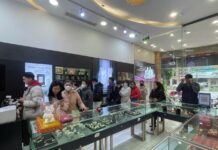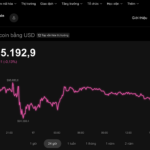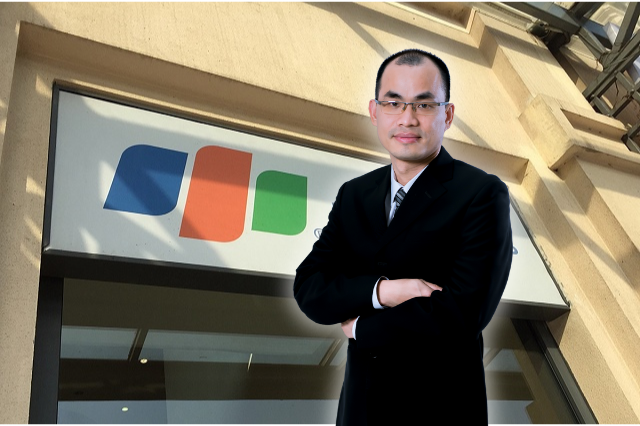According to the Vietnam Fruit and Vegetable Association (VINAFRUIT), the country’s durian cultivation area currently spans approximately 180,000 hectares, with 50% already yielding an average of 17.5 tons per hectare. Fresh durian production reaches around 1.5 million tons annually, steadily increasing. Recently, innovative startups have emerged, transforming durian peels and seeds into valuable resources while addressing environmental pollution.
Following the success of the Lộc Nhân coffee grounds recycling project, Nguyễn Tấn Lộc and his team are now developing biochar and insect repellent from durian peels. Lộc explains that by pyrolysis in an oxygen-free environment, they produce smokeless charcoal—a high-value fuel poised to replace coal and coconut shell charcoal, with export potential to Japan and South Korea. Domestically, the charcoal targets BBQ restaurants. The distillation byproduct, a plant-friendly liquid, also acts as an insect repellent. Additionally, durian seeds can be ground into protein-rich seasoning for animal feed or food products. The team aims to deploy processing equipment directly in raw material regions to reduce transportation costs and environmental impact.
“This model requires minimal machinery investment—around 200 million VND for a small facility. We’ve developed prototypes and are finalizing tests before mass commercialization,” Lộc reveals.
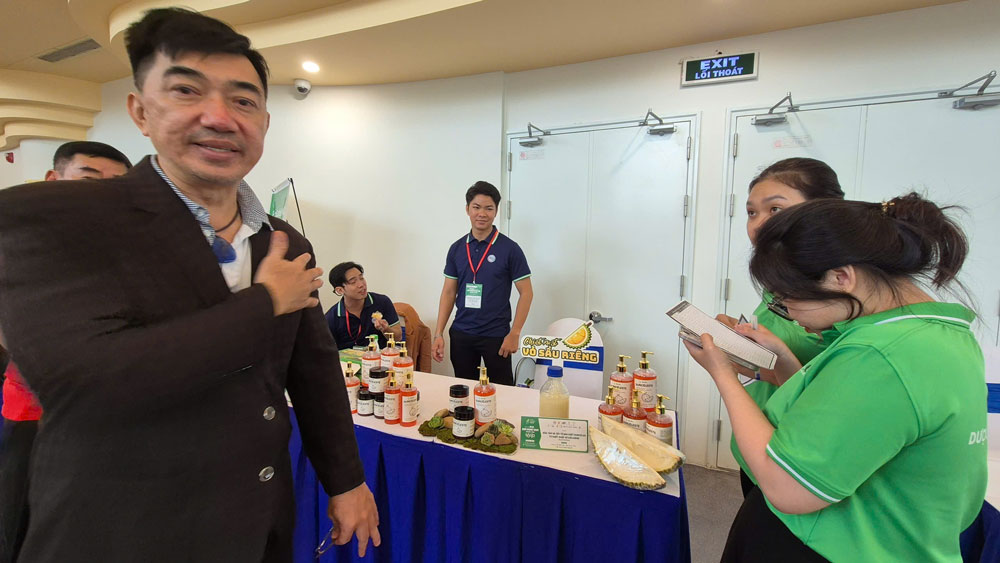
HUTECH researchers showcase polysaccharide gel extraction from durian peels for cosmetics at the 2025 Startup Fair in Ho Chi Minh City.
At the 2025 Startup Fair in Ho Chi Minh City, HUTECH University’s Applied Science Institute unveiled a project extracting polysaccharide gel from durian peels for cosmetics. Dr. Phạm Minh Nhựt, Head of Biotechnology, highlights two target products: shower gel and facial masks. The active gel exhibits potent antioxidant and anti-inflammatory properties.
The project holds high commercialization potential due to its use of abundant, low-cost raw materials and alignment with natural beauty trends. Researchers are also exploring the use of residual peel fibers for water filtration. Future phases include developing the white peel layer into jelly for desserts or bubble tea. The primary challenge is manually separating the white layer from the spiky exterior, necessitating specialized equipment for scaling.
Ngô Tường Vy, CEO of durian exporter Chánh Thu, expresses keen interest in such initiatives. “During peak season, we discard hundreds of tons of peels daily, underscoring the urgent need for eco-friendly solutions to valorize this waste,” she notes.
With durian flesh comprising only 30-35% of the fruit’s weight, the 1.5 million annual tons of durian production generate substantial peel waste, posing significant environmental risks if left unaddressed.
Nguyễn Văn Mười, VINAFRUIT Deputy Secretary-General, suggests converting peels into organic fertilizer—a sustainable waste solution reducing agricultural input costs. However, this approach offers limited economic value, primarily mitigating pollution.
“Regional durian producers lack industrial-scale solutions for this massive waste stream. Urgent research is imperative,” Mười stresses.
Promising startups are pioneering high-value products from durian byproducts. Continued innovation is crucial to maximize waste potential and minimize environmental harm, VINAFRUIT’s Deputy Secretary-General emphasizes.
The Future of Urban Mobility: Hanoi’s Vision for a Greener City
A bold step towards sustainability or an unrealistic plan?
After a thorough review, the Hanoi Department of Construction identified 115 proposed locations for charging stations within the Inner Ring Road area.
“Vietnamese Produce Exports to the US Reap Over $300 Million”
In the first seven months of the year, the United States significantly ramped up its imports of Vietnamese fruits and vegetables, witnessing a remarkable surge of 67% compared to the same period last year.

